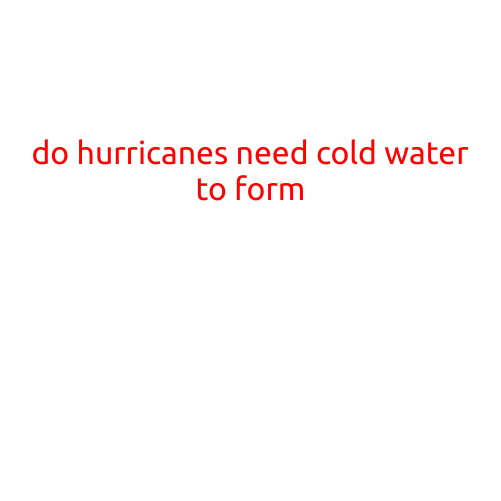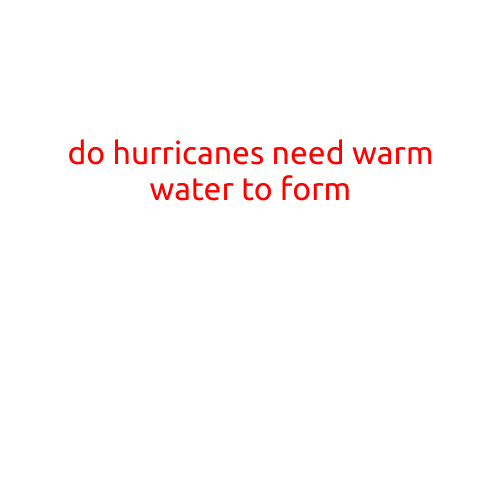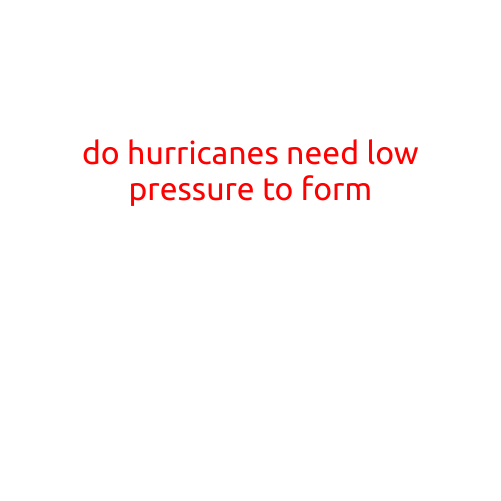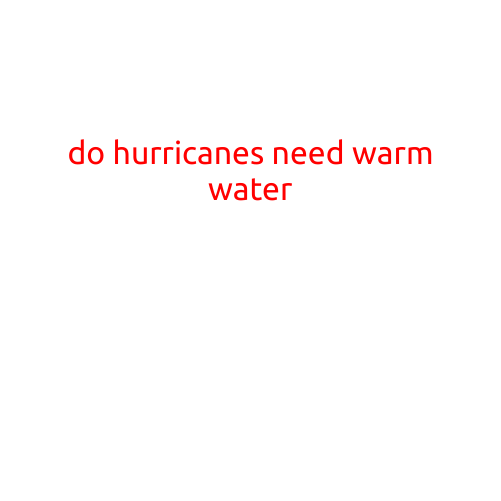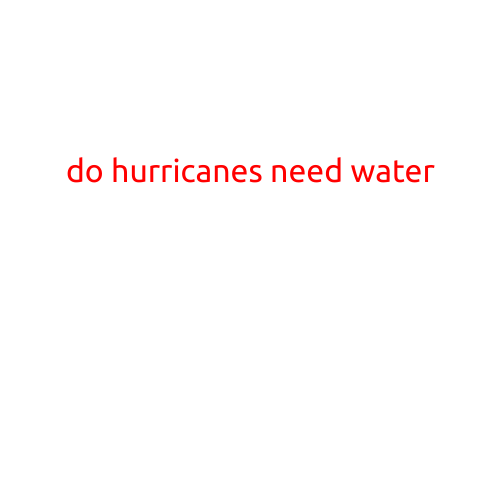
Do Hurricanes Need Water?
Hurricanes are powerful storms that can bring devastation and destruction to coastal communities. But have you ever wondered what makes them tick? Specifically, what role does water play in the formation and strength of hurricanes? In this article, we’ll explore the relationship between hurricanes and water, and answer the question: do hurricanes need water?
How Hurricanes Form
Hurricanes form over warm ocean waters in the Atlantic, Pacific, and Indian Oceans. They begin as a tropical disturbance, which is a cluster of thunderstorms that develops over the ocean. As the disturbance moves over warm water, it absorbs heat and moisture from the ocean, which fuels its growth.
Warm ocean water is essential for hurricane formation because it:
- Provides heat: Warm water heats the air above it, causing it to rise and create convection currents.
- Releases moisture: As the air rises, it cools and condenses, releasing moisture into the atmosphere.
- Strengthens the storm: The released moisture and heat energy help to strengthen the storm, causing it to grow in size and intensity.
Water in the Eye of the Storm
At the center of a hurricane, there’s a calm, circular area known as the eye. The eye is a critical part of the storm’s structure, and it’s where the storm’s circulation is weakest. The eye is also where the storm’s lowest pressure occurs, which is why it’s so calm.
The eye is sustained by a self-reinforcing cycle:
- Warm air rises: As air rises in the eye, it creates a region of low pressure.
- Air sinks: Air from the surrounding atmosphere moves towards the eye to fill the low pressure zone.
- Warm air rises again: As the air sinks, it cools and becomes saturated with moisture. This creates convection currents that rise, feeding the storm.
Do Hurricanes Need Water?
In short, yes, hurricanes need water to form and strengthen. Hurricanes are powered by the heat and moisture from the ocean, which fuels their growth and intensity. The warm ocean water provides the energy and moisture needed to sustain the storm’s circulation and convection currents.
In fact, studies have shown that hurricanes tend to weaken if they move over cool ocean waters or land, where the energy sources are limited. This is why hurricanes often intensify over the warm waters of the ocean before making landfall.
Conclusion
In conclusion, hurricanes do need water to form and strengthen. The warm ocean waters provide the essential energy and moisture needed to fuel the storm’s growth and circulation. Without the warmth and moisture from the ocean, hurricanes would not be able to form or intensify.
As we continue to monitor the increasing threat of hurricanes and their impact on coastal communities, it’s essential to understand the role of water in their formation and strength. By recognizing the importance of warm ocean waters, we can better prepare for and respond to these powerful storms.
